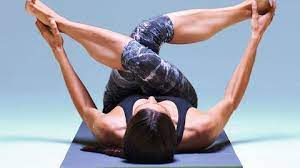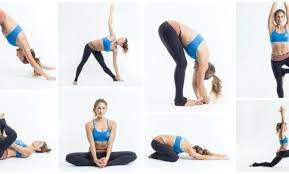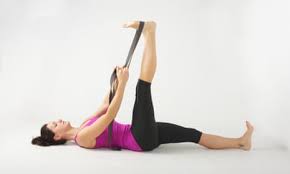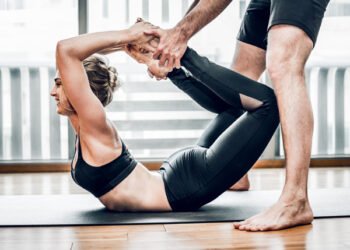Yoga has long been known to be a beneficial practice for those looking to improve their overall health and wellness. However, it’s also becoming increasingly popular among runners and other athletes as a way to enhance their performance and prevent injuries. Whether you’re a seasoned runner or a weekend warrior, incorporating yoga into your training regimen can provide a range of benefits.
Increases Flexibility
One of the primary benefits of yoga for runners and other athletes is that it helps to increase flexibility. Runners often experience tightness in their hamstrings, hip flexors, and calves, which can lead to discomfort or even injury. By practicing yoga regularly, you can improve your flexibility and range of motion, which can help to reduce the risk of injury and improve your running form.
Strengthens Muscles
Yoga is also an excellent way to strengthen the muscles that support your running form. The practice of yoga requires you to engage and stabilize your core muscles, which can help to improve your posture and overall running mechanics. Additionally, many yoga poses require you to hold your bodyweight in various positions, which can help to build strength in your arms, legs, and core.
Improves Breathing
Proper breathing is essential for any athlete, particularly runners who rely on efficient breathing to maintain their pace and endurance. Practicing yoga can help to improve your breathing by teaching you to breathe deeply and evenly, which can increase your lung capacity and improve your oxygen intake. Many yoga practices also incorporate breathing techniques known as pranayama, which can help to calm the mind and improve overall focus.
Reduces Stress
Running and other athletic pursuits can be stressful on the body and mind. Yoga is a great way to reduce stress and anxiety, which can have a range of benefits for athletes. High levels of stress can contribute to poor sleep, increased risk of injury, and reduced performance. By practicing yoga regularly, athletes can learn to manage stress and maintain a healthy balance between training and recovery.
Enhances Recovery
Recovery is an essential part of any training regimen, and yoga can be a valuable tool for athletes looking to enhance their recovery process. Yoga helps to improve circulation, which can promote healing and reduce inflammation in the body. Additionally, yoga can help to reduce muscle soreness and stiffness, which can help athletes to recover more quickly between workouts.

Increases Body Awareness
Yoga can also help to improve body awareness, which is essential for runners and other athletes looking to improve their form and technique. By practicing yoga, athletes can learn to better understand their body’s strengths and limitations, which can help them to make adjustments to their training regimen and prevent injury.
Promotes Mindfulness
In addition to improving body awareness, yoga can also help to promote mindfulness. Mindfulness is the practice of being present and fully engaged in the current moment. By practicing mindfulness, athletes can learn to tune out distractions and focus on their training, which can lead to better performance and improved mental clarity.
Prevents Injuries
Finally, yoga can be an effective tool for preventing injuries among runners and other athletes. By increasing flexibility, strengthening muscles, improving body awareness, and promoting recovery, yoga can help to reduce the risk of injury and improve overall athletic performance.
Incorporating Yoga Into Your Training
If you’re a runner or other athlete looking to incorporate yoga into your training regimen, there are several ways to get started. Many yoga studios offer classes specifically designed for athletes, or you can find online videos and resources to practice at home. It’s important to start slowly and gradually increase the intensity and duration of your yoga practice as your body adjusts.
Additionally, it’s important to choose yoga poses and practices that are specifically beneficial for runners and other athletes. Some of the most effective poses for runners
Another benefit of yoga for runners and athletes is that it can help prevent injuries. Many athletes experience injuries due to overuse or repetitive strain on certain muscles and joints. Yoga can help by improving flexibility and mobility, as well as strengthening muscles that are often neglected in traditional training, such as the hips, glutes, and core. When these muscles are strong and flexible, they can better support the body during movement and reduce the risk of injury.

In addition, yoga can help athletes recover from injuries more quickly. Certain yoga poses can help increase circulation and blood flow to injured areas, which can promote healing and reduce inflammation. Yoga can also help athletes manage pain and discomfort by increasing body awareness and teaching relaxation techniques that can help reduce stress and tension in the body.
Finally, yoga can have mental benefits for athletes as well. Many athletes experience stress and pressure from competition and training, which can take a toll on their mental health. Yoga can help athletes manage stress and anxiety by promoting relaxation and mindfulness. The practice of yoga encourages athletes to focus on their breath and be present in the moment, which can help reduce feelings of anxiety and improve overall mental wellbeing.
Overall, there are many benefits of incorporating yoga into an athlete’s training regimen. Yoga can improve flexibility, strength, and balance, reduce the risk of injury, aid in injury recovery, and promote mental wellbeing. Whether you’re a runner, weightlifter, or any other type of athlete, there’s a yoga practice that can benefit you. So why not give it a try and see how it can enhance your athletic performance and overall wellbeing?
First, find a teacher who has experience working with athletes and understands the physical demands of your sport. They can help you tailor your practice to target areas that are particularly important for your sport, and can offer modifications to make poses more accessible or challenging depending on your individual needs.
Second, don’t expect to be perfect right away. Yoga is a practice, and it takes time to build strength, flexibility, and balance. Don’t get discouraged if you can’t do a certain pose right away – focus on the process of working towards it and the progress you make along the way.
Third, be patient with your body. Athletes are often used to pushing themselves to their limits, but in yoga, it’s important to listen to your body and respect its limits. Avoid pushing yourself too far, too fast, as this can lead to injury. Instead, focus on building strength and flexibility gradually over time.
Finally, don’t be afraid to experiment with different styles of yoga and different types of classes to find what works best for you. Some athletes may prefer more vigorous, dynamic classes such as power yoga or vinyasa flow, while others may benefit more from slower, more meditative styles like yin yoga or restorative yoga.
In conclusion,
yoga can be an incredibly beneficial practice for athletes of all types. Whether you’re looking to improve your flexibility, strength, and balance, prevent injuries, recover from an injury, or promote mental wellbeing, there’s a yoga practice that can help you achieve your goals. By incorporating yoga into your training regimen, you can take your performance to the next level and improve your overall health and wellbeing. So why not give it a try and see how yoga can benefit you?







